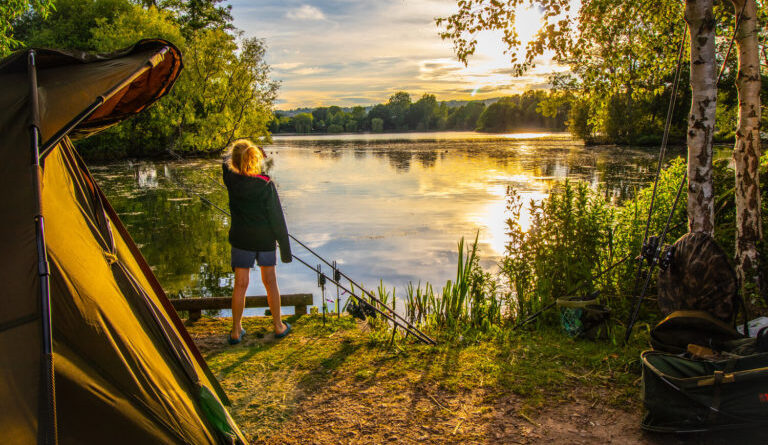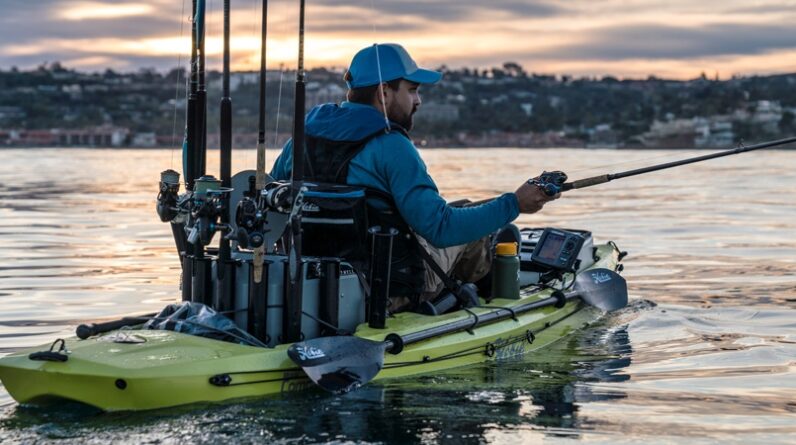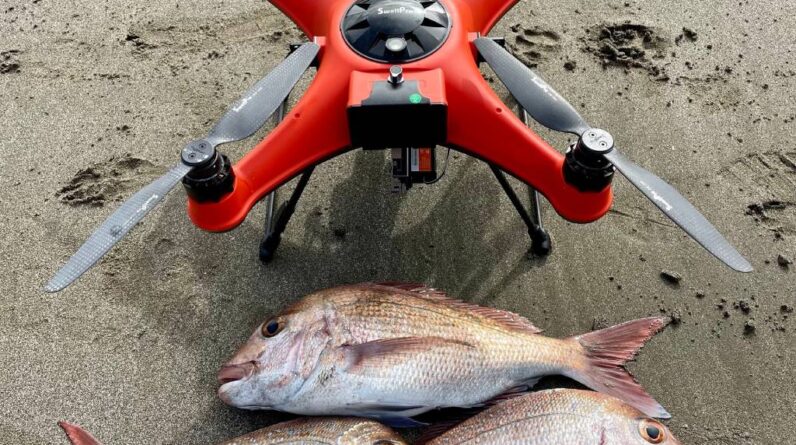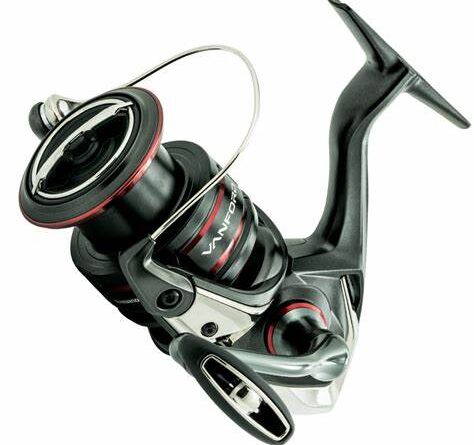Saltwater vs Freshwater Fishing: Fishing has always been more than a hobby — it’s a connection to nature, a test of skill, and a gateway to adventure. Whether you’re standing knee-deep in a serene mountain stream or casting from a rocking boat miles offshore, each type of fishing offers its own unique thrill.
But one of the most common questions for both beginners and seasoned anglers alike is: “What’s better — saltwater or freshwater fishing?”
The truth is, both environments have their magic. Saltwater fishing opens the door to giant, hard-fighting species and vast ocean horizons, while freshwater fishing delivers peaceful moments, accessibility, and variety in lakes, rivers, and ponds.
In this comprehensive guide crafted by our expert team at CheerfulFisherman.com, we’ll dive deep into everything you need to know about saltwater vs. freshwater fishing. From essential techniques and popular fish species to the best gear choices, global fishing hotspots, and cost comparisons — we’ve got you covered. Plus, discover insider pro tips and real-world advice to help you master both environments, catch more fish, and make every trip an unforgettable adventure.
1. The Basic Difference: What Makes Saltwater and Freshwater Fishing Unique
At its core, the distinction between saltwater and freshwater fishing is exactly what it sounds like — the type of water you’re fishing in.
Freshwater Fishing
Freshwater refers to rivers, lakes, ponds, and streams. These waters have little to no salt content, and the fish here have evolved to thrive in lower salinity environments.
Freshwater fishing is often:
- More accessible (you can fish in local lakes or rivers)
- Easier for beginners
- Great for relaxation and skill development
- Home to species like bass, trout, catfish, and crappie
Saltwater Fishing
Saltwater fishing happens in oceans, seas, and coastal waters — from beaches and piers to deep-sea expeditions.
It’s typically:
- More physically demanding
- Gear-intensive due to the corrosive nature of saltwater
- Exciting because of the size and strength of marine species
- Home to fish like tuna, marlin, redfish, snook, and tarpon
Both worlds offer incredible experiences, but your choice will depend on what kind of adventure you’re seeking.
2. Fish Species: Who Lives Where
One of the most fascinating differences between freshwater and saltwater fishing lies in the species you’ll encounter. Let’s explore the main characters in each environment.
Freshwater Favorites
Freshwater fish come in all shapes and behaviors — perfect for anglers who love variety.
Top species include:
- Largemouth Bass: The king of freshwater fishing. Found across North America and parts of Asia and Europe, bass are aggressive, smart, and fun to catch.
- Trout: From rainbow trout in North America to brown trout in Europe, they’re a favorite for fly anglers.
- Catfish: Bottom dwellers known for their whisker-like barbels. They can grow huge and are a great target for night fishing.
- Crappie and Bluegill: Smaller fish perfect for beginners and kids.
- Pike and Muskie: Freshwater predators that deliver a serious fight.
Saltwater Superstars
Saltwater fish are known for their power, size, and diversity.
Top species include:
- Tuna: Powerful, fast, and found in tropical and temperate oceans worldwide.
- Marlin and Sailfish: Trophy catches for serious offshore anglers.
- Redfish (Red Drum): A popular inshore target, especially around the Gulf of Mexico and U.S. East Coast.
- Snook: A prized coastal predator found around Florida and the Caribbean.
- Tarpon: Known as the “Silver King,” tarpon put on spectacular aerial shows.
- Snapper and Grouper: Great table fish and found near reefs and wrecks.
Each environment brings its own “bucket list” catches — and anglers often dream of mastering both worlds.

3. Gear and Equipment: Saltwater vs. Freshwater Setup
Choosing the right gear makes all the difference — and the contrast between saltwater and freshwater setups is massive.
Rods and Reels
- Freshwater Gear: Lightweight to medium action rods and smaller reels (spinning or baitcasting) work best. They’re made for finesse and control.
- Saltwater Gear: Heavier rods and reels designed to withstand corrosion and handle big fish. Look for sealed bearings and anodized aluminum construction.
Fishing Line
- Freshwater: Monofilament or fluorocarbon lines (6–15 lb test) are usually enough.
- Saltwater: Braided or heavy monofilament (20–100 lb test) lines handle long runs and rough conditions.
Hooks, Lures, and Bait
- Freshwater anglers use soft plastics, crankbaits, spinnerbaits, worms, and live bait like minnows or worms.
- Saltwater anglers use larger lures, metal jigs, spoons, poppers, and live bait like shrimp, mullet, or squid.
Tackle Care
Saltwater is notorious for rusting and corroding gear. Always:
- Rinse your equipment with fresh water after use
- Apply corrosion-resistant oil
- Store in a dry, cool place

4. Techniques and Styles of Fishing
Different waters call for different techniques. Here’s how tactics vary between saltwater and freshwater environments.
Freshwater Techniques
- Casting and Retrieving: Perfect for bass and pike.
- Fly Fishing: Iconic for trout and salmon.
- Trolling: Used in large lakes for walleye and muskie.
- Bottom Fishing: Targeting catfish or carp.
Saltwater Techniques
- Surf Fishing: Casting from beaches into breaking waves.
- Pier Fishing: Easy access to deep water without a boat.
- Inshore Fishing: Targeting snook, redfish, and tarpon around mangroves and flats.
- Offshore Fishing: Deep-sea adventures for tuna, marlin, and mahi-mahi.
- Trolling and Jigging: Common for pelagic fish in open water.
Saltwater fishing often demands more stamina, while freshwater requires patience and precision.
5. Cost Comparison: Which Is More Affordable?
Fishing can be as simple or as expensive as you make it. But on average, freshwater fishing is more budget-friendly.
Freshwater Fishing Costs
- Basic rod and reel combo: $40–$150
- Local fishing license: $10–$40 per year
- Lures and tackle: $50–$100
- No boat needed (many fish from shore or docks)
Saltwater Fishing Costs
- Rod and reel setup: $150–$800
- Saltwater license or permit: $20–$100
- Offshore trips or charters: $300–$2,000+
- Maintenance: more expensive due to salt damage
If you’re just starting, freshwater is often the better gateway. Once you’re ready for bigger challenges, you can take your skills to the ocean.
6. Accessibility and Convenience
Another huge difference is how easy it is to go fishing.
Freshwater Fishing Wins for Accessibility
You can find freshwater almost anywhere — local ponds, rivers, and reservoirs are perfect for spontaneous trips.
Saltwater Requires Planning
If you don’t live near the coast, you’ll need to travel, plan a charter, or bring specialized gear.
However, for those near the ocean, saltwater fishing provides incredible opportunities right off the beach or local pier.

7. Environmental Conditions and Challenges
Each type of water environment presents its own challenges for anglers.
Freshwater Conditions
- Water temperature and oxygen levels affect fish behavior.
- Seasonal patterns (spawning, migration, etc.) determine where to fish.
- Clear water often requires stealth and finesse.
Saltwater Conditions
- Tides and currents dictate fish activity.
- Weather and wind can change conditions quickly.
- Salinity and temperature differences impact where fish gather.
Learning to “read the water” in both settings is one of the most valuable skills any angler can develop.
8. Health Benefits and Experience Differences
Fishing, in both forms, offers tremendous mental and physical benefits.
- Freshwater fishing tends to be calmer and more meditative.
- Saltwater fishing often provides a workout and an adrenaline rush.
Both improve focus, reduce stress, and encourage spending time outdoors — something we all need more of.
9. Global Hotspots: Best Places to Try Both
Let’s explore some of the world’s best fishing destinations, for both saltwater and freshwater anglers.
Top Freshwater Locations
- Lake Victoria, Africa: Massive Nile perch and tilapia.
- Lake Baikal, Russia: Ancient lake full of unique fish species.
- Lake Erie, USA/Canada: Excellent walleye and perch fishing.
- Amazon Basin, South America: Exotic species like peacock bass and piranha.
- Scotland’s Rivers: Legendary salmon runs in the Spey and Tay.
Top Saltwater Locations
- Florida Keys, USA: The ultimate inshore and offshore destination.
- Cairns, Australia: Known for giant black marlin.
- Maldives: Paradise for tuna and reef fishing.
- Panama’s Hannibal Bank: Big-game hotspot for tuna and billfish.
- Seychelles Islands: Flats fishing for bonefish and trevally.
No matter where you go, local guides can help you adapt to the environment and maximize your catch.

10. Common Mistakes Anglers Make (and How to Avoid Them)
Even seasoned anglers slip up occasionally. Here are a few common errors to watch out for:
Freshwater Mistakes
- Using the wrong lure for the water temperature
- Fishing too fast when the fish are sluggish
- Overlooking local regulations and bag limits
Saltwater Mistakes
- Forgetting to rinse gear after fishing
- Ignoring tide schedules
- Using freshwater gear (which rusts quickly)
Preparation and knowledge are your best tools to prevent these headaches.
11. Conservation and Sustainability
The oceans and freshwater ecosystems are under increasing pressure from pollution and overfishing. As anglers, it’s our duty to fish responsibly.
Tips for Sustainable Fishing
- Practice catch and release whenever possible.
- Follow local size and bag limits.
- Use barbless hooks for easier release.
- Avoid single-use plastics and properly dispose of fishing line.
- Support conservation programs and sustainable charters.
Healthy waters mean more fish — and more fishing adventures for everyone.

12. Family and Beginner Friendliness
If you’re introducing kids or beginners to fishing, freshwater is usually the best place to start.
It’s safer, calmer, and easier to manage gear and bait. However, once someone’s confident, a saltwater outing can be a thrilling next step.
Pro Tip: Start small — even a few bluegill or small bass can spark a lifelong passion for fishing.
13. The Thrill Factor: Comparing the Fight
Many anglers say the biggest difference between saltwater and freshwater fishing is the power of the fight.
- Freshwater fish often require finesse, patience, and accuracy.
- Saltwater fish bring brute strength and speed.
Hooking a 200-pound marlin offshore is a completely different battle compared to reeling in a 5-pound bass — both amazing, just different types of excitement.
14. Gear Recommendations from CheerfulFisherman.com
Whether you fish salt or fresh, here are some CheerfulFisherman-approved gear picks loved by global anglers:
Top Freshwater Picks
- Rod: Ugly Stik GX2 Spinning Rod (Durable and affordable)
- Reel: Shimano Stradic FL (Smooth performance for all freshwater species)
- Line: Berkley Trilene Fluorocarbon (Great sensitivity)
- Lure: Rapala Original Floating Minnow (A classic that always catches fish)
Top Saltwater Picks
- Rod: Penn Battalion II Surf Rod
- Reel: Penn Battle III 6000 (Built for saltwater abuse)
- Line: PowerPro Braided Line (Tough and abrasion-resistant)
- Lure: FishLab BBZ Hard Mullet (Ideal for inshore predators like snook and redfish)
15. Which Is Right for You?
If you’re still wondering which side you belong to — saltwater or freshwater — here’s a quick comparison:
| Feature | Freshwater | Saltwater |
|---|---|---|
| Accessibility | Easy (anywhere) | Limited to coasts |
| Cost | Lower | Higher |
| Gear Maintenance | Minimal | Requires rinsing and care |
| Fish Size | Smaller | Larger |
| Skill Level | Great for beginners | More advanced |
| Adventure Level | Peaceful | Adrenaline-filled |
Verdict:
Start with freshwater to learn the basics — then chase the thrill of saltwater when you’re ready to up the challenge.

16. Final Thoughts: The Joy of Both Worlds
At the end of the day, fishing isn’t about choosing sides — it’s about connection, experience, and joy.
Freshwater fishing gives you peace and accessibility. Saltwater fishing gives you adrenaline and adventure. Together, they complete the circle of what it means to be an angler.
Whether you’re on a calm lake at sunrise or battling a tuna offshore, remember: every cast tells a story, and every catch builds your skill and appreciation for nature.
So don’t limit yourself — explore both worlds. The water’s waiting, the fish are calling, and your next great fishing story is out there.











